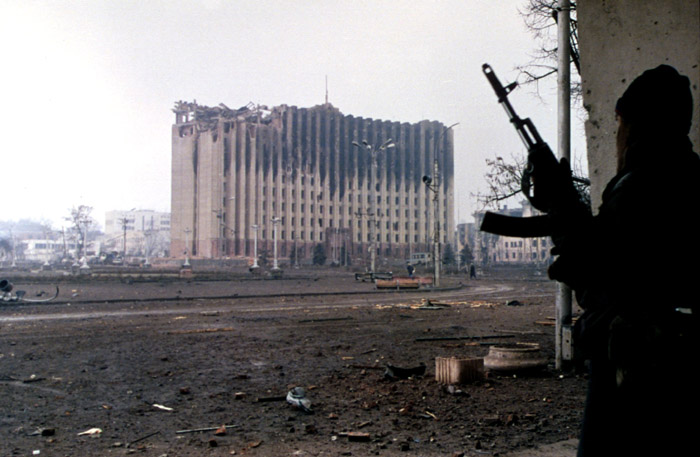Russia and ISIS and International Law
Russia now says that it believes that ISIS was behind the crash of a commercial Russian aircraft, Metrojet 9268, over the Sinai desert on October 31 which killed the 224 people on board. Like the Paris attacks, the Metrojet bombing targeted civilian lives. And in the Russian case, those lives included 25 children. Russia has vowed to find and punish the terrorists responsible.
Published by The Lawfare Institute
in Cooperation With

Russia now says that it believes that ISIS was behind the crash of a commercial Russian aircraft, Metrojet 9268, over the Sinai desert on October 31 which killed the 224 people on board. Like the Paris attacks, the Metrojet bombing targeted civilian lives. And in the Russian case, those lives included 25 children. Russia has vowed to find and punish the terrorists responsible. Although Russia is already ostensibly fighting ISIS through airstrikes in Syria, to date those strikes have primarily targeted non-ISIS groups which oppose Assad’s regime. Now, the focus of Russian airstrikes may change. Russia’s renewed emphasis on defeating ISIS, in conjunction with the ISIS attacks in Paris, has a number of international law implications.
First, the argument exists that the U.S. (and other counties’) strikes against ISIS in Syria violate Article 2(4) of the U.N. Charter. Thus far, the strongest argument to the contrary has been that U.S. is exercising collective self-defense on behalf of Iraq (this assumes attacks by non-state actors trigger the right to self-defense), and therefore, the current action is permissible because Syria is unable or unwilling to prevent attacks against Iraq from non-state actors operating from within its borders. Following the Paris attacks, France no longer needs to rely on collective self-defense. Arguably, the U.S. is not required to either in light of the apparent threats by ISIS against the United States. For its part, Russia has now referred its right to self-defense under the U.N. Charter following the Metrojet bombing. But Syrian sovereignty remains an issue, which may explain why some countries have limited their support for strikes to those in Iraq, but not in Syria. Of all international action in Syria, the Russian air attacks are the most clearly permissible under international law (at least as a matter of jus ad bellum) because they have Syrian permission. And by emphasizing that Russian airstrikes will continue to support the Syrian Arab Republic’s ground troops –the basis for Syrian authorization of Russian involvement—Putin underscores that his use of force has a clear basis in international law.
Second, Russia’s engagement against ISIS may make a U.N. Security Council resolution authorizing the use of force against ISIS more likely. But such a resolution, if it is politically feasible at all, will probably be on Russian terms. It may require specific language prohibiting the use of force against al-Assad and the Syrian regime itself or it might not apply in Syria at all. After the events in Libya, Russia and China argued that the NATO-led forces exceeded their authority under U.N. Security Council Resolution 1973 by assisting in the ouster of Qaddafi. Consequently, Russia might not support any Resolution authorizing force in Syria, no matter how strongly the language prohibited the use of force for regime change. This is especially true because Russian use of force in Syria already complies with international law and therefore, of all actors in this space, Russia needs a UN resolution least.
Third, the future of sanctions against Russia for the annexation of Crimea is uncertain. The European appetite for these sanctions was already mixed at best and the current set of EU sanctions is due to expire in January 2016. The increased need for Russian cooperation against ISIS will only heighten pressure to roll back sanctions. Next week, French President Hollande is going to Moscow to discuss the coordination of military and intelligence activities against terrorism. There are rumored discussions between Moscow and Washington on joint measures against terrorism, as well. Significantly, on the matter on sanctions, the Paris attacks potentially weaken common European foreign policy (and policy on migration). For example, while Angela Markel has supported the Russian sanctions, reactionary anti-immigrant sentiments in Germany in the short-term may weaken her foreign policy hand. French conservative (and former President) Sarkozy is already calling the sanctions against Russia a big mistake.
All of the foregoing suggests that Russian claims that it – more than the West – has followed and promoted international law will be strengthened in the months to come. The emphasis on international already common to Russian national security documents is likely to continue.




.jpg?sfvrsn=d5e57b75_5)
